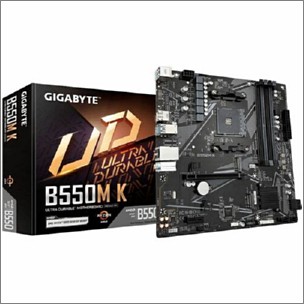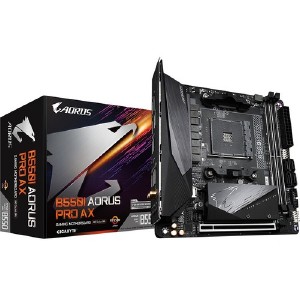We realize it can be very overwhelming to purchase a motherboard. There's a lot to know and understand to confirm compatibility as well as assuring you the board will fit your needs and wants. CompSource can make this as easy and stress-free as possible.
Chat with us or give our professionals a quick phone call (800)-413-7361.
Motherboard Best Sellers
Featured Products
Products Customers Recently Viewed
Narrow Your Results by SubCategories
Computer and Electronic Motherboards
A motherboard sometimes known as the mainboard, system board, baseboard, planar board or logic board, or a mobo is the main printed circuit board (PCB) found in general purpose microcomputers and other expandable systems. It holds and allows communication between many of the crucial electronic components of a system, such as the central processing unit (CPU) and memory, and provides connectors for other peripherals. Unlike a back-plane, a motherboard usually contains significant sub-systems such as the central processor, the chipset's input/output and memory controllers, interface connectors, and other components integrated for general purpose use.Motherboard refers to a PCB with expansion capability and as the name suggests, this board is often referred to as the "mother" of all components attached to it, which often include peripherals, interface cards, and daughter cards: sound cards, video cards, network cards, hard drives, or other forms of persistent storage; TV tuner cards, cards providing extra USB slots and a variety of other custom components.
Things to lookout for when shopping for a Motherboard
What form factor will your PC case accept?
Choosing a motherboard can be difficult if you do not know the form factor of your case. Most cases today use the ATX form factor. However, there are several others depending on the size of you case. EX: ITX, E-ATX.
What type of socket does your CPU use?
The socket your CPU uses has to match the socket on the motherboard.
How many graphics cards do you plan on using?
Most graphics cards use PCIe x16 slots, and many motherboards will have at least two of them. However, once the first slot is occupied, most motherboards will force the other PCIe x16 slots to run at either 8x or 4x speed. NVidia cards will only work at a minimum 8x speed, while AMD cards are capable of running at 4x speed. It's important to read the motherboard reviews to find out how this might affect your build.
We want this to be as easy and stress-free as possible.
Chat with us or give our professionals a quick phone call (800)-413-7361.
I was suprised to find that my order actually arrived earlier than expected. I chose the free shipping option by ground and still received my order the next day. don_nellMore Reviews





















